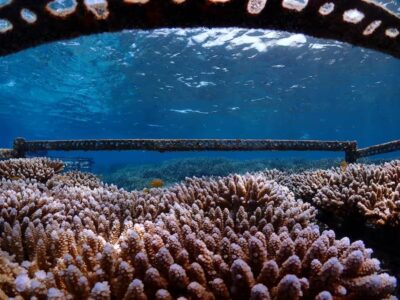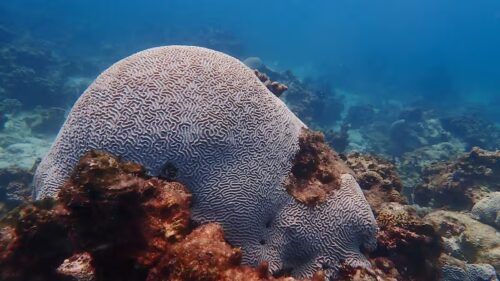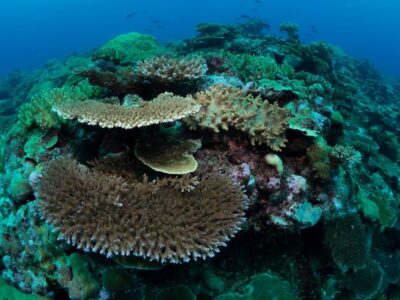Coral has been bred to survive intense marine heatwaves for the first time, although scientists stress it is not a “silver-bullet solution” to protect reefs from the effects of climate change.
The breeding programme proves it is possible to boost heat tolerance of adult coral offspring in a single generation, said researchers. But the improvement was only “modest” when compared to future marine heatwaves expected under climate change, they added.
And selective breeding to withstand short periods of heat stress did not appear to enhance the ability of offspring to survive long-term heat exposure, they warned.

Study author Adriana Humanes, a research associate at the Coralassist Lab based at Newcastle University in the UK, said the study represents the first time that corals have been “selectively bred” to enhance the survival of adult colonies when faced with marine heatwave stress. “Our study shows that assisted evolution via selective breeding is feasible, suggesting that current global efforts to develop assisted evolution techniques are warranted,” she told The National.
However, study lead author, Liam Lachs, a postdoctoral research associate at the same university, said the work shows that although selective breeding is feasible, it is not a “silver-bullet solution”. He said: “The enhancement we achieved was modest compared to the marine heatwaves that are expected to occur in the coming decades. This tells us that selective breeding interventions could have some beneficial outcomes but are not a panacea. Rapid action on reducing greenhouse gas emission is still urgently needed to give corals a chance.”
The work provides an important proof of concept, showing that selective breeding could be used to help improve survival amid rising marine temperatures, said Dr James Guest, reader in coral reef ecology at the university’s School of Natural and Environmental Sciences. It might be possible to breed other coral but they might have less predictable spawning times than those in the study, which produce large numbers of eggs and spawn synchronously with quite predictable timing. “First we need to have a better understanding of their reproductive biology,” he told The National.

“How many corals need to outplanted to benefit wild populations? Can we ensure there are no trade-offs – evidence so far suggests this is not a large risk? How can we avoid dilution of selected traits once added to the wild? How can we maximise responses to selection?
“Given the moderate levels of enhancement we achieved in this study, the effectiveness of such interventions will also depend on urgent climate action.” The researchers point out that selective breeding has been practised by humans for thousands of years to produce desirable characteristics in animals and plants.
Coral reefs support the well-being and livelihoods of close to 1 billion people, provide up to $9.9 trillion in ecosystem services, such as coastal protection, as well as boosting jobs and food, tourism and recreation.
Corals in the Arabian Gulf are able to survive at significantly higher temperatures than those in other areas, but they are operating at the edge of their limits and highly vulnerable to marine heatwaves, which can trigger mass bleaching of the kind that was recently discovered in the southern Arabian Gulf.

Last month it emerged there had been a near “total bleaching” of corals from Abu Dhabi to Umm Al Quwain, with about 40 per cent of reefs whitened in Ras Al Khaimah and off Khor Fakkan.
Bleaching occurs when heat stress forces a coral to lose its algae – which provides colour and most of its energy – turning them white. They remain alive but will die if temperatures do not return to normal.
The most recent event represented the fourth global mass bleaching after 1998, 2010 and 2014 to 2018, suggesting they are becoming more frequent, giving corals less time to recover.
Last year featured record sea surface temperatures around the world, in part due to El Nino, the natural weather phenomenon which also drives up the mercury on land. Data showed the weather phase ended in April, however, marine temperatures remained at “an unusually high level”.
Source: https://www.thenationalnews.com/climate/2024/10/14/coral-bred-to-withstand-heat-for-first-time/



